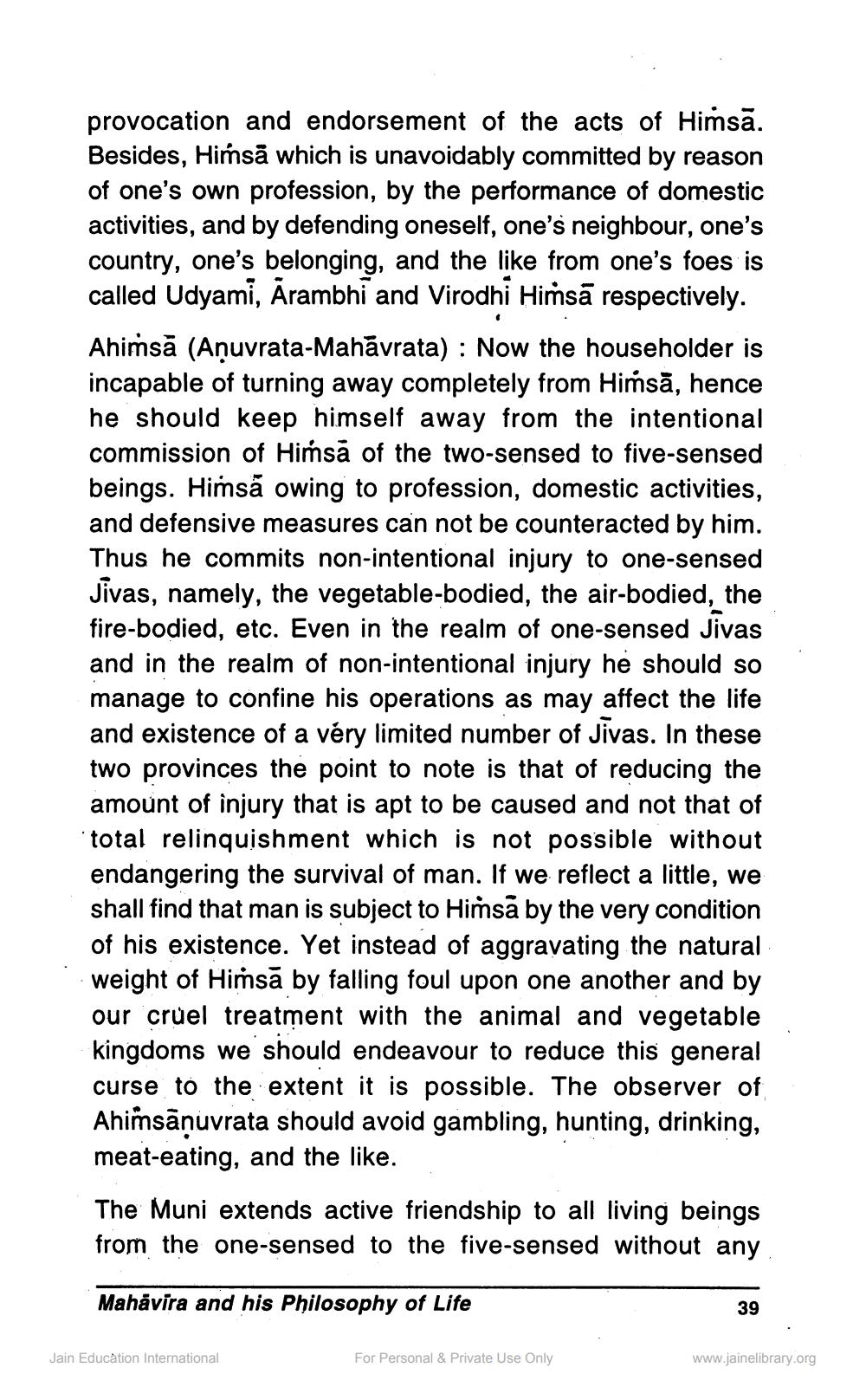________________
provocation and endorsement of the acts of Himsā. Besides, Hiṁsā which is unavoidably committed by reason of one's own profession, by the performance of domestic activities, and by defending oneself, one's neighbour, one's country, one's belonging, and the like from one's foes is called Udyami, Arambhi and Virodhi Hiṁsā respectively. Ahimsā (Aņuvrata-Mahāvrata) : Now the householder is incapable of turning away completely from Hissă, hence he should keep himself away from the intentional commission of Hiṁsā of the two-sensed to five-sensed beings. Hiṁsā owing to profession, domestic activities, and defensive measures can not be counteracted by him. Thus he commits non-intentional injury to one-sensed Jivas, namely, the vegetable-bodied, the air-bodied, the fire-bodied, etc. Even in the realm of one-sensed Jivas and in the realm of non-intentional injury he should so manage to confine his operations as may affect the life and existence of a very limited number of Jivas. In these two provinces the point to note is that of reducing the amount of injury that is apt to be caused and not that of total relinquishment which is not possible without endangering the survival of man. If we reflect a little, we shall find that man is subject to Hiṁsā by the very condition of his existence. Yet instead of aggravating the natural weight of Hiṁsā by falling foul upon one another and by our cruel treatment with the animal and vegetable kingdoms we should endeavour to reduce this general curse to the extent it is possible. The observer of Ahimsānuvrata should avoid gambling, hunting, drinking, meat-eating, and the like.
The Muni extends active friendship to all living beings from the one-sensed to the five-sensed without any
Mahavira and his Philosophy of Life
39
Jain Education International
For Personal & Private Use Only
www.jainelibrary.org




